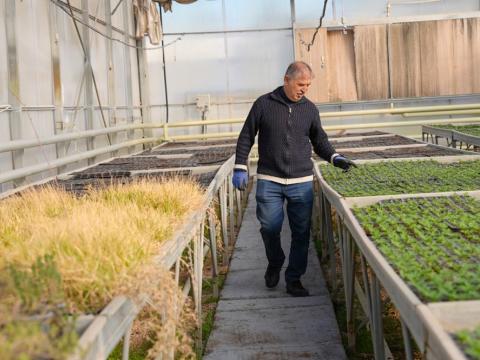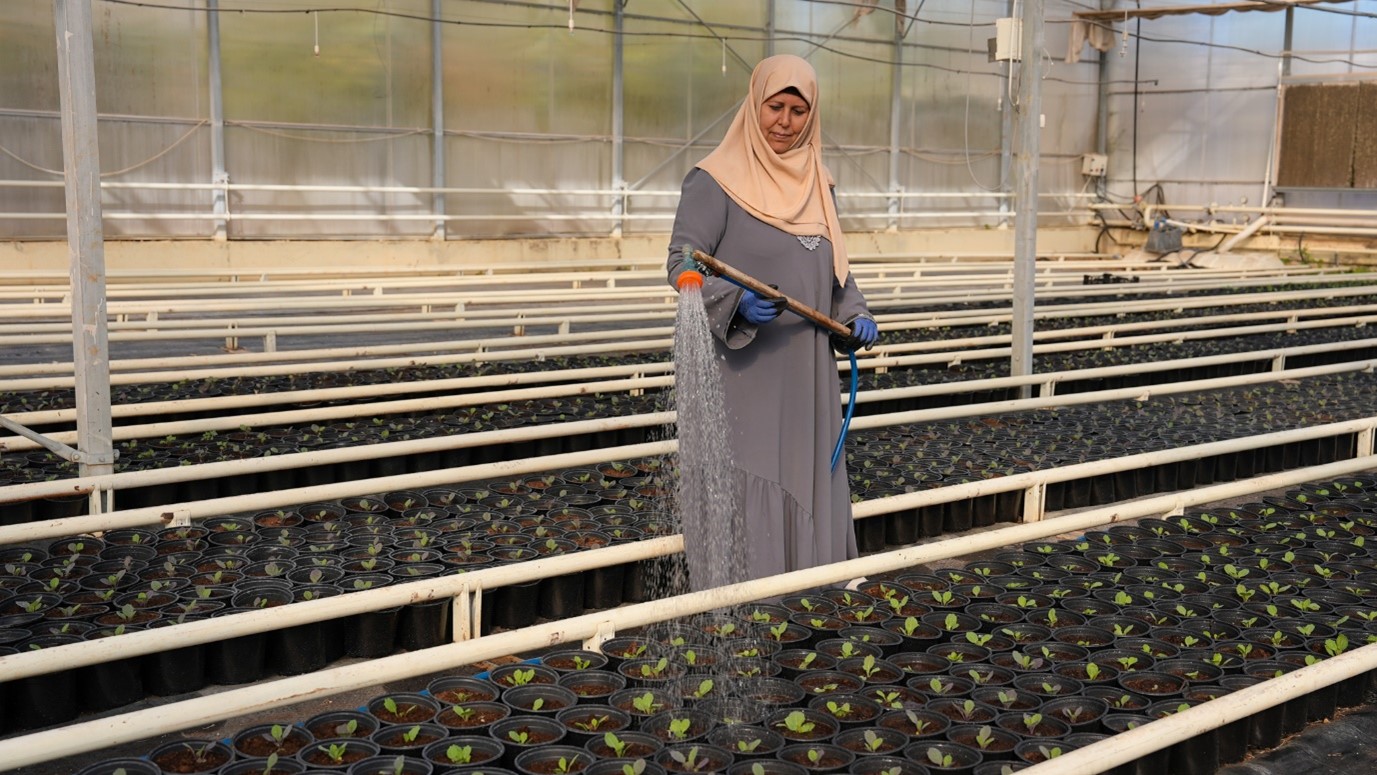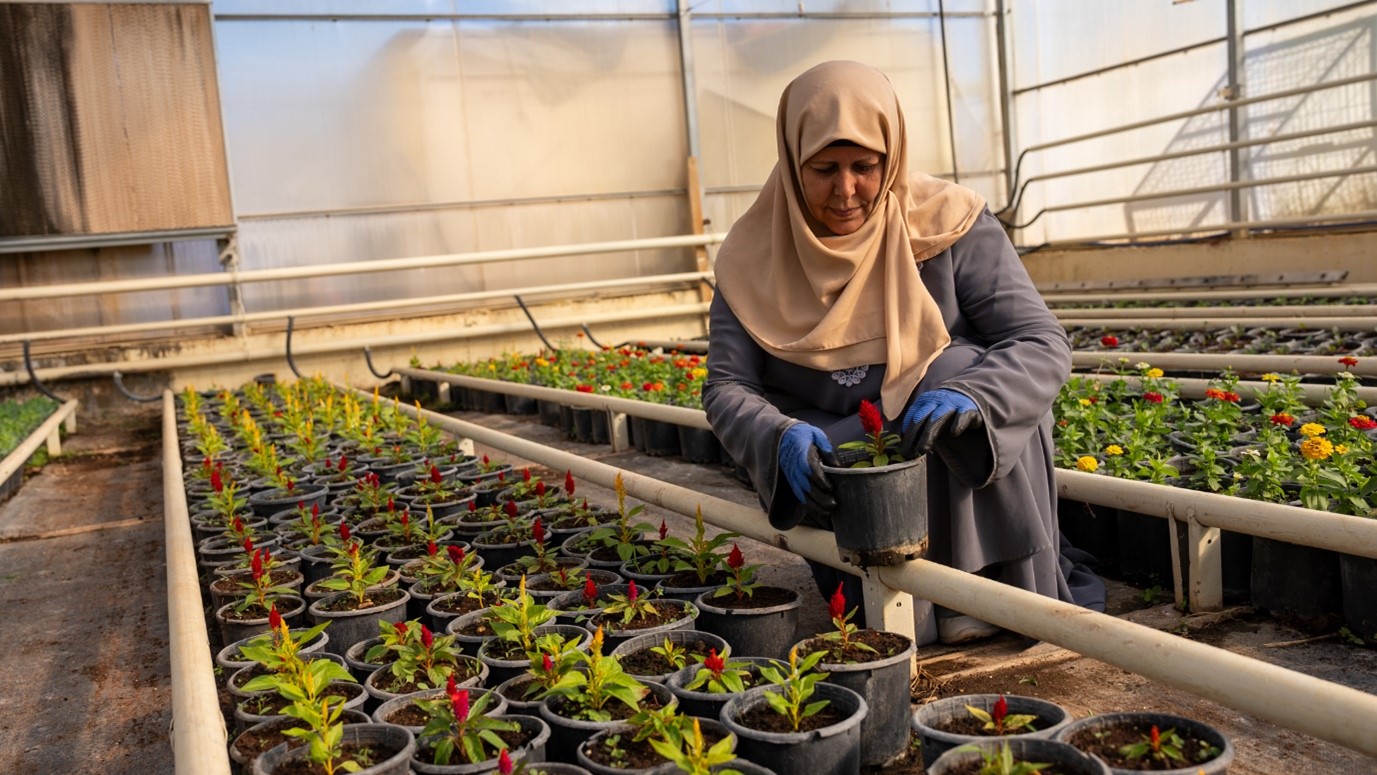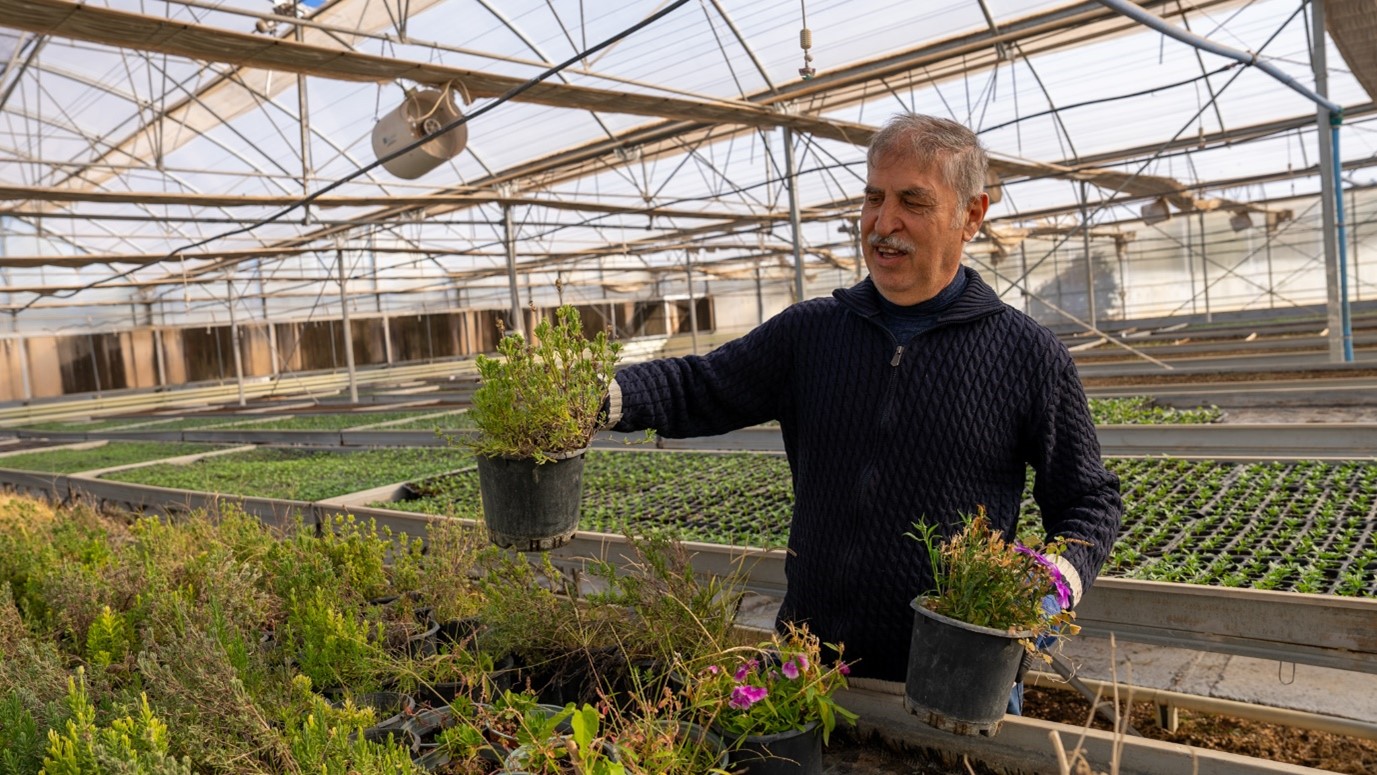Planting Seeds of Hope and Recovery

After two decades of working as an agricultural engineer in Saudi Arabia, Ahmed dreamt of returning to Syria to enjoy a peaceful retirement in his homeland. "I was responsible for an 8-kilometre project at a major company," he recalls. "I worked hard and saved, hoping to go back and build a life in Syria." But when he returned in 2011, his dream was disrupted by the onset of the Syrian conflict. Just one year after coming home, he was forced to flee again, this time to Türkiye, seeking refuge from the escalating violence.
For Fatima, the story was different but equally heartrending. In 2012, she was living with her family in a district near Aleppo, cherishing the simple joys of everyday life. "We were living an ordinary, happy life,” she recalls, “but the war changed everything.” As the conflict intensified, she and her family were forced to leave their home, crossing into Türkiye to escape the dangers that had engulfed their community. Like millions of others, Ahmed and Fatima each began a new life in Türkiye, facing the struggles and uncertainties that come with being refugees.

Adapting to life in a new country was difficult. Ahmed took on various jobs to survive, though he always returned to agriculture, the field that had defined much of his life. "Agriculture has been my lifeline," he explains. "It’s what I know best, and it has helped me support my family even in the hardest times." For Fatima, survival also required resilience. As she took on the responsibility of caring for her large family, including children and grandchildren, the adjustment was challenging and required daily strength.
In February 2023, an earthquake devastated the region, sending shockwaves through the lives of millions, including Ahmed and Fatima. “We were already struggling, and then the earthquake took away what little stability we had left,” Ahmed shares, reflecting on the hardships they endured. Jobs were lost, homes were damaged, and many, like Ahmed and Fatima, found themselves facing an uncertain future yet again, with limited resources to rely on.
In response, World Vision Syria Response launched the Recover Türkiye Project, designed to support both local community members and refugees affected by the earthquake. This initiative aimed to provide job training, skills development, and employment opportunities that would allow participants to rebuild their lives. One of the project’s major components, a collaboration with the Şahinbey Municipality, focused on agriculture—a lifeline for both Ahmed and Fatima.
Both Ahmed and Fatima were selected to participate in an agricultural training course under the project, which aimed to bring together refugees and local community members to learn and work side by side. Ahmed was particularly excited, viewing it as an opportunity to reconnect with the profession he loved. “Agriculture has always been my passion,” he says with pride. “This chance lets me continue that passion while also helping my new community recover.”
For Fatima, who had always felt a deep connection to the earth, the course was equally meaningful. "Since childhood, I've loved working with flowers and tending to our family garden," she explains with a smile. “This course brought that joy back into my life. It feels like I’m planting seeds of hope again.” The program taught participants techniques for growing and managing plants and flowers, providing them with practical skills that they could use not only for income but also to beautify their new communities.

The training also served a larger purpose—building a bridge between the refugees and the local residents of Gaziantep. By working together, Ahmed and Fatima found they were not just gaining valuable skills but also building connections with Turkish community members, helping to foster a spirit of cooperation and mutual respect. “It’s been more than just a course,” Fatima reflects. “Working together, learning side by side with locals, has made me feel like a part of something bigger.”
Upon completing the course, both Ahmed and Fatima will be employed with Şahinbey Municipality, working in greenhouses and public gardens throughout Gaziantep. The steady income provided much-needed stability for both of them and allowed Ahmed to contribute to his family’s welfare, relieving some of the burden on his son. “This has been a turning point for me,” Ahmed says, visibly moved. “For the first time in years, I feel hopeful. I’m helping to rebuild this city while rebuilding my life.”

The Recover Türkiye Project, funded by World Vision USA and World Vision Korea, has empowered Ahmed, Fatima, and over 30 others with the skills to cultivate not only plants and culinary expertise but also the aspirations of a stable, united future. For Ahmed, Fatima, and approximately 300 beneficiaries who have participated in career development and legal empowerment sessions, the project has planted seeds of resilience. It has provided them with more than a livelihood—it has offered a sense of belonging, purpose, and renewed hope.
*Name has been changed to protect identity.